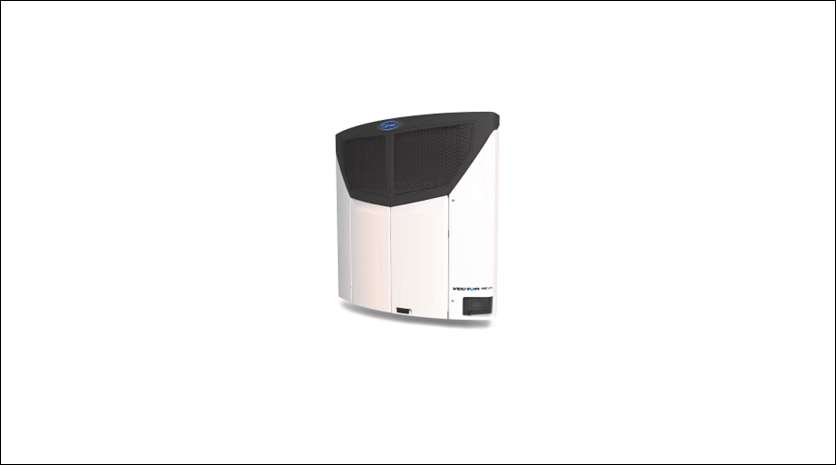The leading global provider of wholesome, secure, sustainable, and clever building and cold chain solutions, Carrier Global Corporation, includes Carrier Transicold.
At IAA Transportation 2022, Carrier Transicold showcased its first trailer design powered by a specialised hydrogen fuel cell as another example of its dedication to electric and environmentally friendly temperature-controlled transport solutions. The Vector® transport refrigeration unit’s chassis was specifically designed to accommodate the fuel cell system (TRU). Without affecting performance or refrigeration capacity, the system produces zero direct emissions.
The leading global provider of wholesome, secure, sustainable, and clever building and cold chain solutions, Carrier Global Corporation, includes Carrier Transicold.
Developed in close cooperation with Bosch and PowerCell Sweden AB, the new hydrogen fuel cell technology will be coupled with Carrier Transicold’s Vector HE 19 trailer unit. Central to the innovative new system is the integration of the Bosch 48-volt automotive battery, which directly interfaces the fuel cell with the refrigeration unit, removing the need for a standalone engine or a separately mounted buffer battery system.
“Carrier Transicold continues its electrification journey, providing an electric solution in every area of the temperature-controlled transport market, from vans through to multi-temperature trailers,” said Victor Calvo, Vice President and General Manager, Carrier Transicold. “The new hydrogen-powered Vector concept is a major step forward for the company and we’re delighted to demonstrate the future of transport refrigeration for customers at IAA. We are committed to exploring every avenue to reduce emissions and deliver better sustainability for customers – and hydrogen fuel cell technology is extremely exciting.”
The hydrogen fuel cell technology delivers the same level of autonomy as existing diesel engines used in the standard Vector units. By using a hydrogen fuel cell system, customers can maintain operations with the legacy products, but without any of the associated emissions.
The new Bosch fuel cell system is powered by hydrogen tanks coupled with an electric power distribution unit (PDU). The PDU is used to convert the direct current provided by the fuel cell into the alternating current needed to operate the refrigeration unit. The refilling time for the new concept is equivalent to a standard diesel engine and, depending on the tank size, can also achieve a similar autonomy range.
The combination of the Vector’s existing all-electric E-Drive™ technology – a mainstay of the company’s trailer systems since 1999 – and its innovative design removes the need for the mechanical transmissions found in belt-driven truck and trailer refrigeration systems, making it ideally suited to operate on the electric power derived from the hydrogen cell, while delivering increased efficiency and reduced risk of refrigerant leaks.
Launched in 2020, a first demonstrator version was presented in 2021 by Carrier and Bosch with the hydrogen fuel cell system placed in a frame under the trailer chassis. The advanced version presented at IAA goes one step further and integrates the hydrogen fuel cell within the standard Vector chassis.
The new concept Vector with hydrogen integration signifies another positive step forward for Carrier Transicold as it continues to push towards its 2030 Environmental, Social and Governance goal of helping its customers avoid more than one gigaton of greenhouse gas emissions.
For more information visit www.carriertransicold.eu.
Cookie Consent
We use cookies to personalize your experience. By continuing to visit this website you agree to our Terms & Conditions, Privacy Policy and Cookie Policy.















